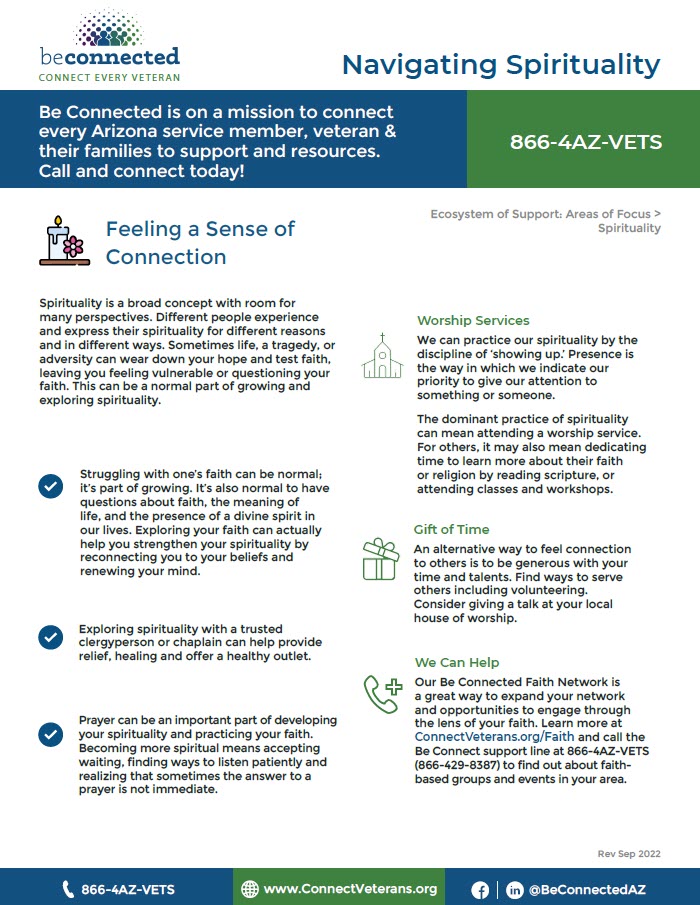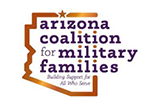Explore the 10 Areas of Focus within the The Be Connected Ecosystem of Support
Promoting the sense of connectedness, faith and thoughts that provide reassurance, hope and a system of beliefs and values.

Sometimes life, a tragedy, or adversity can wear down your hope and test faith, leaving you feeling vulnerable. As a result, struggling with one’s faith can be normal; it’s part of growing. It’s also normal to have questions about faith and God. However, as long as there’s a seed of belief in you, you can reconnect to your spirituality and renew your mind. Spirituality is a broad concept with room for many perspectives. There are plenty of spirituality examples where people experience and express their spirituality for different reasons and ways.
Common Ways to Increase Spiritual Connection
- Prayer can be a first step toward developing your spirituality and practicing your faith. However, becoming more spiritual means accepting waiting, finding ways to listen patiently and accepting that sometimes the answer to prayers is not immediate.
- We can practice our spirituality by the discipline of showing up. Presence is how we indicate our priority to give our attention to something or someone. For most religions, the dominant practice of spirituality typically means attending a weekly service in a place of worship. For others, it may also mean dedicating time to learn more about their faith or religion by reading scripture or attending classes and workshops.
- Be generous with your time and talents. First, take stock of the things you’re good at doing and the things that bring you joy. Then, find reasons to do them more, not only for your well-being but because they might be soothing or helpful to others.
- Find ways to serve others. Volunteering can directly connect you with someone in need to offer yourself in service to others. For example, you can talk to your local church or research the needs of your particular community.
Spirituality FAQs
Many resources in the state of Arizona offer help, including community, government and military benefits. However, these systems can be complex and overwhelming to work through, especially when seeking a resolution to an immediate need. Be Connected uses a resource matching tool to help find the right information and resources that best fit your situation. Please call 866-429-8387 for additional assistance.
The ten areas of focus include Basic Needs, Employment, Family & Social Supports, Finances & Benefits, Higher Education, Housing & Homelessness, Legal, Mental Health & Substance Abuse, Physical Health and Spirituality.
Click here to view the other 10 Areas of Focus Be Connected can help with!





